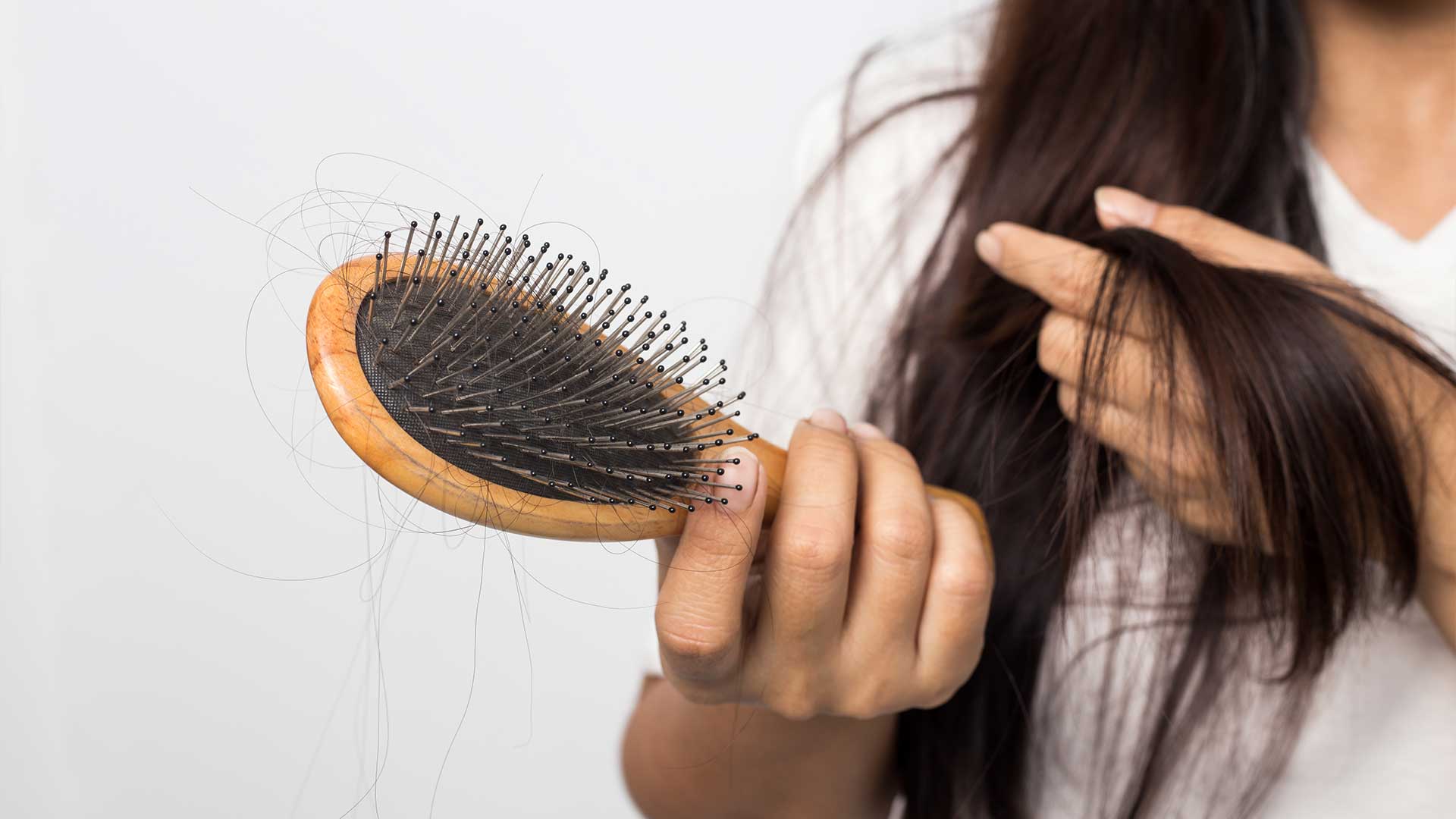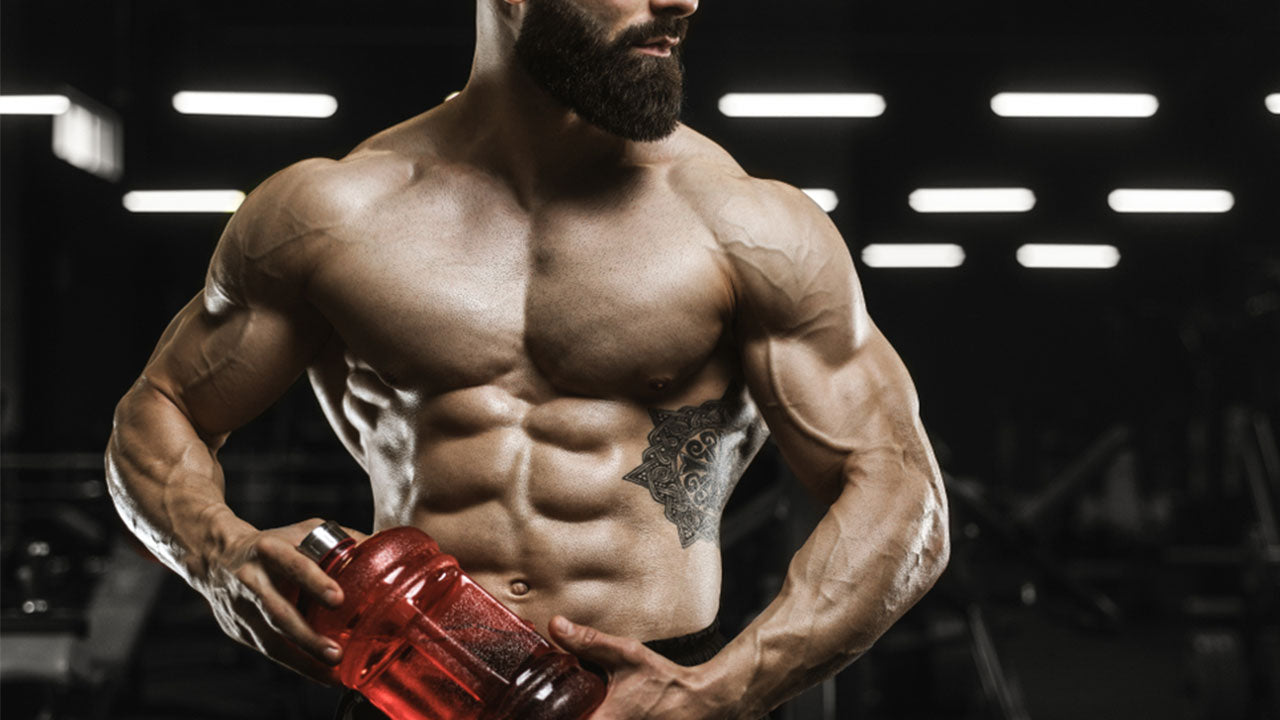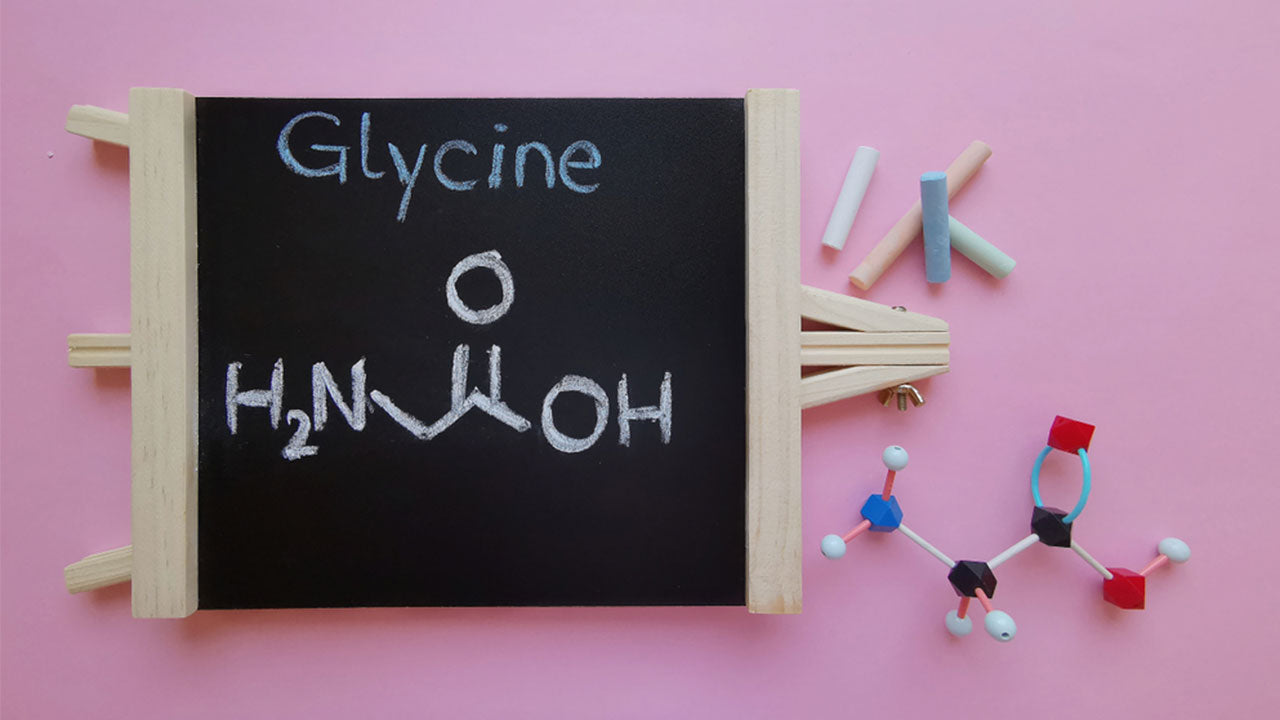Amino Acids for Hair Loss
 By: by Amino Science
By: by Amino Science

We lose anywhere from 50 to 100 strands of hair a day, so there’s no need to be alarmed by clumps of hair in the shower drain or loose hairs on the carpet. But if you’re noticing more hair loss than normal and witnessing hair thinning, then you could be dealing with an imbalance of hormones, low thyroid, too much testosterone, or a nutritional deficiency, such as too little protein or iron. If nutritional deficiencies are at play, amino acids for hair loss are an effective and natural first line of defense. After all, amino acids are the building blocks of protein, and protein is needed to grow tissue cells, including the cells that make up your hair.
Lysine and Iron for Hair Loss
Iron deficiency is the number one nutritional deficiency in the world. If your hair loss is caused by a lack of iron, there’s a chance that you may also be low in the essential amino acid lysine. Studies link hair loss to low levels of both iron and lysine. A 2002 study published in Clinical and Experimental Dermatology showed that when female participants supplemented with iron and lysine, hair loss decreased, but when subjects supplemented with just iron, hair loss stayed the same. Researchers note that patience is required, as the benefits of iron and lysine supplementation for hair loss may take a few months to be noticeable.
Lysine is one of nine essential amino acids that your body cannot make on its own. In addition to supporting the body’s uptake of iron, it also plays a role in zinc uptake. Low levels of zinc have been linked to pattern baldness, which accounts for 95% of hair loss in men and affects 45% of women. Lysine also helps to build collagen, a protein component of hair.
Complete proteins such as red meat, poultry, pork, eggs, cheese, cod, sardines, soybeans, nuts, legumes, and brewer’s yeast are rich in lysine. If you’re on a low-protein or vegan diet you may be at risk for not just iron and lysine deficiency, but a possible protein deficiency overall. Being deficient in even just one amino acid could accelerate hair loss. If you think you might be protein deficient, start by following the Recommended Dietary Allowance (RDA) for protein: 0.36 grams of protein for every pound of body weight.
Amino Acids for Healthy Hair Growth
Healthy hair depends on two amino-acid-built proteins: keratin and collagen.
Ninety percent of every strand of hair on your head is made of a tough, fibrous protein called keratin. Keratin is formed from long chains of amino acids that allow your hair to bend, twist, and turn without breaking, lending strength and elasticity to hair.
Collagen is another building block of hair. A 2016 study from Japanese researchers linked hair loss to decreased collagen near hair follicle stem cells beneath the scalp. Eating protein-rich foods and taking essential amino acid supplements can support the health of your hair by helping your body produce more keratin and collagen.
The 4 amino acids that help boost keratin hair growth are:
- Cysteine
- Lysine
- Arginine
- Methionine
The 4 amino acids that help increase collagen production are:
- Lysine
- Methionine
- Glycine
- Proline
But amino acids don't stop there. They also help form red blood cells that carry oxygen and nutrients to hair cells. Healthy hair depends on these nutrients.
We’ve already seen how lysine can help protect against hair loss, but let’s take a look at other key amino acids for hair loss in more detail.
Arginine
Beyond producing keratin for healthy hair, arginine (or L-arginine) can help put a stop to hair loss in several ways. It’s an excellent immune enhancer, and as such provides a shield against disease-related hair loss.
Arginine is best known for boosting nitric oxide levels in the body. Nitric oxide is a vasodilator that relaxes blood vessels and opens up the potassium channels of cells, thereby improving blood flow throughout the body. By increasing nitric oxide, arginine supports optimal circulation and reinforces blood supply to the hair root, which helps boost hair growth.
Arginine has also demonstrated effectiveness as a topical agent that can help protect hair from bleaching and coloring treatments. When researchers replaced part of the ammonia in a coloring agent with arginine, hair did not sustain as much damage.
Arginine is not an essential amino acid, which means the body can make it on its own, but during times of stress or injury, arginine may become a conditionally essential amino acid (not enough arginine is being produced to meet all demands and dietary support may be called for). Arginine is abundant in dairy, fish, poultry, beef, sesame seeds, chickpeas, oatmeal, soybeans, granola, pumpkin seed, sunflower seeds, and nuts.
Cysteine
Cysteine is a nonessential amino acid that makes up a quarter of keratin. Several studies indicate that cysteine supplementation can help decrease hair loss in men and women with androgenic alopecia (pattern baldness/hair loss).
Cysteine also helps produce a very potent antioxidant called glutathione, which can help protect hair follicles from oxidative stress. Topical cysteine is considered a safe treatment for straightening hair.
To ensure adequate cysteine intake, eat dairy, pork, poultry, legumes, broccoli, Brussels sprouts, and grains. Taking a supplement of L-cysteine or N-acetyl cysteine can induce vomiting and other symptoms of gastric distress. Cysteine is produced from the essential amino acid methionine, and adequate methionine intake generally ensures a sufficient amount of cysteine.
Methionine
Methionine is an important amino acid necessary for the production of keratin and procollagen—the precursor of collagen. It lends structure and strength to your hair and helps to prevent hair loss by building a sulfurous network of chains.
Researchers presented the results of a study examining the efficacy of methionine as a hair loss treatment at a dermatological congress in Florence in 2006. Scientists divided 30 people into two groups. The control group took a placebo and the variable group supplemented with an amino acid preparation containing methionine and vitamin B complex. After 6 months, those supplementing with methionine had 10% more hair regrowth than participants taking the placebo. Other studies show that methionine may help slow hair thinning and greying.
Unlike arginine and cysteine, methionine is an essential amino acid that you must get from the foods you eat and the amino acid supplements you take. Methionine amino acid-rich foods include:
- Eggs
- Fish
- Seeds
- Leafy greens
- Broccoli
- Zucchini
- Squash
- Nuts, especially Brazil nuts
Glycine and Proline
Glycine impacts hair health because it’s central to collagen production, as is proline, which also plays a key role in cartilage production. Both are nonessential amino acids that you can find in fish, meat, dairy products, soybeans, spinach, cabbage, beans, kale, banana, kiwi, legumes, broccoli, spinach, and soybeans.
Tyrosine
In addition to thinning hair and hair loss, the color of hair might also take a hit due to stress or adrenal, thyroid, or pituitary gland dysfunction. This is where the amino acid tyrosine can come to our aid.
Tyrosine helps form melanin, which imparts color to our skin and hair. By keeping tyrosine levels adequate in the body, we can help stabilize the body's production of melanin. Food sources of melanin include pumpkin seed, lima beans, dairy and soy products, almonds, and fish.
Important Hair-Loss Nutrients
Healthy hair depends on a nutritive diet full of vitamins, minerals, and antioxidants. In addition to amino acids for hair loss, the following nutrients help keep hair in lustrous condition.
- Vitamin A supports sebum production to keep hair follicles lubricated.
- Vitamin C is a key nutrient in collagen synthesis for strong hair.
- Iron, silica, and zinc encourage new hair growth and protect against hair loss.
- Vitamins E, B5, B6, B12, and folic acid improve blood circulation for better nutrient delivery to hair follicles.
- Essential fatty acids such as omega-3 contribute to hair health by promoting circulation and cell growth.
If you are deficient in any of these nutrients or an amino acid, hair is likely to feel dry and brittle and a supplement program may be in order. However, it’s important not to take hair loss supplements that target a specific nutrient if you are not deficient in that nutrient, as too much of a vitamin, such as too much vitamin A or C, can actually cause hair loss. A complete and balanced essential amino acid supplement, however, does not carry that same risk.


Up to 25% off Amino
Shop NowTAGS: benefits
Join the Community
Comments (0)
Most Craveable Recipes




 833-264-6620
833-264-6620



















